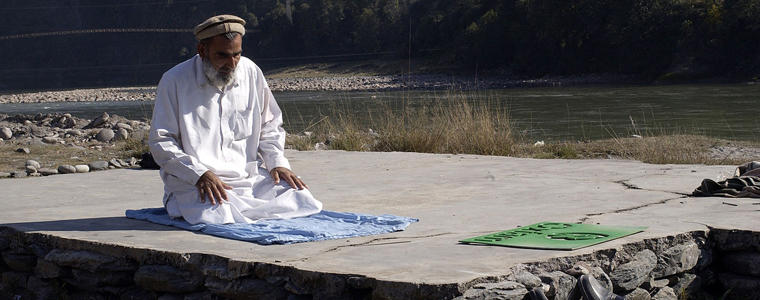USIP to Train Senior Pakistani Religious Figures in Conflict Resolution
In an effort to strengthen peacebuilding skills inside of volatile but strategically important Pakistan, the U.S. Institute of Peace (USIP) will conduct an unusual training workshop on mediation, conflict resolution and conflict-prevention skills for 20 senior religious leaders from Pakistan in June.

In an effort to strengthen peacebuilding skills inside of volatile but strategically important Pakistan, the U.S. Institute of Peace (USIP) will conduct an unusual training workshop on mediation, conflict resolution and conflict-prevention skills for 20 senior religious leaders from Pakistan in June.
The six-day intensive training will be conducted entirely in Urdu at the Barcelona International Center for Peace, in partnership with that institution.
The 20 religious figures all come from Pakistan's Ahl-e Sunna wa-l Jama'a (ASJ) tradition, a mainstream Sunni strain of Islam that emphasizes the personal and spiritual dimensions of faith. It has an extensive and longstanding presence in Pakistan and throughout the Islamic world. The 20 are considered learned spiritual authorities known as pirs, or as sheikhs, who have historical lineage to a saint and have an affiliation with a religious order. Their respective annual religious festivals typically each draw hundreds of thousands or more pilgrims.
Qamar-ul Huda, an expert on Islam and a senior program officer in the Religion and Peacemaking Center of Innovation at USIP, describes them as a "who's who of the Pakistani religious leadership."
However, the ASJ leaders have also been targeted by Taliban and other extremist groups and, says Huda, their vulnerability has deepened because the Pakistani government has been slow to react and counter the violence against ASJ leadership and communities. The Pakistani religious leaders tend to favor the preservation of a heritage that both adheres to Islamic customs and inculcates spiritual awareness, often at odds with fundamentalist Taliban orthodoxy. At the same time, the ASJ leaders and peace activists have not been a focus of U.S. or international efforts to counter the extremism that is tearing at the fabric of Pakistani society and, relatedly, posing security threats to Afghanistan's people and government. "They've been neglected by local and international groups trying to defeat extremism or contain radicalism, and yet the ASJ community has been the most affected by Taliban terrorism," said Huda.
The pirs are critical to practical peacebuilding in Pakistan and in the wider region, since they frequently mediate in family and intra-communal disputes—disputes that at times can be exploited or manipulated by the Taliban or other radical groups to the detriment of Pakistani and U.S. security interests. "They themselves can actually transform conflict and bring about peaceful resolutions. They don't need government support to do that," said Huda.
USIP's Religion and Peacemaking Center has previously conducted peacebuilding sessions with Iraqi religious figures in Beirut and Istanbul in the past three years. And the new Pakistan initiative follows a USIP program in which Institute specialists have regularly worked with ulama (Islamic legal scholars) and madrassa (religious school) administrators in Pakistan to prepare teaching modules for madrassas on subjects relating to peace, conflict resolution and pluralism.
Huda led a team of Pakistani scholars to address the issue of teaching peacebuilding and conflict resolution to students, which in turn resulted in an Urdu peace textbook titled "Peacebuilding and Conflict Resolution in Islam: A Textbook for Students," published in 2010. Last year, he developed a training manual for madrassa teachers to guide instruction tied to the textbook. Some 30 master teachers are now using the textbook in 60 schools across all of Pakistan's provinces, Huda said.
The Pakistani religious leaders who receive USIP training will go home with packets on conflict resolution and mediation, as well as the manuals, and will train their junior staff along the same lines. This USIP initiative will work closely with the trained ASJ leaders to evaluate their skills and their ability to make an impact in their local communities. The USIP workshops will also emphasize the value of building cooperation among other religious leaders as a way of strengthening their individual peacebuilding efforts.
Said Huda, "The larger goal is to activate key religious leaders—from all levels and all of the provinces—and get them involved in mediating conflict."
Related Resources
Crescent and Dove: Peace and Conflict Resolution in Islam, a book by Qamar-ul Huda



